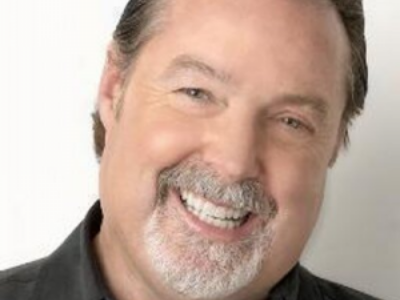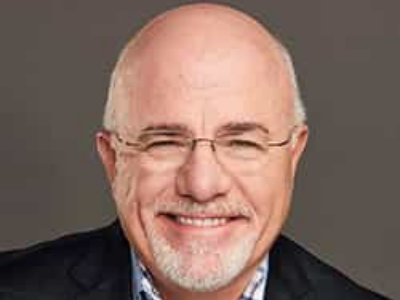Worship leader Sean Feucht mismanaged millions in ministry funds, former associates say
News > Religion News

Audio By Carbonatix
7:25 AM on Tuesday, September 30
By DEEPA BHARATH
LOS ANGELES (AP) — The star of Sean Feucht — once a little-known conservative Christian worship leader and musician — began to climb in 2020 as he challenged government restrictions brought on by the coronavirus’ tightening grip on the world.
At well-attended protest concerts that brazenly flouted social distancing rules, he became a poster child against public health regulations curtailing in-person religious practice. It put Feucht in league with high-profile conservative pundits and elected officials from President Donald Trump to conservative influencer Charlie Kirk and Pete Hegseth, now the secretary of defense.
Alongside his Christian rockstar status, revenue to Feucht’s ministry also skyrocketed, jumping from $243,000 in 2019 to $5 million in 2020 — the last year his ministry filed a Form 990 with the IRS. It’s that deluge of money, Feucht's and his ministry's amassing of expensive real estate in its wake and their lack of financial transparency, which has former ministry staff and volunteers now accusing the worship leader of mismanaging ministry funds.
Three former associates with Feucht's worship organizations, such as Burn 24-7, Let Us Worship and Light a Candle, shared details with The Associated Press about Feucht’s alleged financial mismanagement, verbal abuse and overworking volunteers and staff without fair wages.
Christy Gafford, the former national director and communications lead for Sean Feucht Ministries, said she was fired in May 2024 after demanding accountability and questioning why volunteers had to pay for Feucht to come to their communities.
“I would get very vague answers,” said Gafford, who served for eight years in various roles, including leading a Texas chapter of Burn 24-7. She believes those answers because the Charismatic Christian world emphasizes the work of the Holy Spirit in the form of spiritual gifts, and that faith leaders embody that spirit. “You're supposed to put your trust in your leaders.”
After being fired, Gafford began questioning why more money wasn't used for local ministry initiatives when millions of dollars were spent by Feucht and his organization on real estate.
Feucht, who did not respond to the AP's repeated requests for comment, dismissed these allegations as false in a social media video posted in June. He called them “embittered, upset, angered former volunteers” who had no knowledge of the ministry's financial situation and “had to be dismissed because of moral issues.”
“We’re in great standing with the IRS, with our accountants," he said. "Every single penny you have donated has gone to fulfill kingdom-ordained purpose and I stand by that.”
Feucht said his ministry has spent money on visits to all 50 state capitals and about 30 other U.S. cities, purchased a tour bus and sound systems for concerts, and acquired real estate around the country.
“We’ve got real estate in D.C., which is awesome,” he said, referring to his ministry's headquarters known as Camp Elah on Capitol Hill in Washington. “It’s such a blessing. We’re taking ground for Jesus and we’re not apologizing for that.”
Property records posted online by the concerned former associates show Sean Feucht Ministries has purchased nearly $7 million in property since 2020. The properties include two parsonages in Washington, D.C., and San Juan Capistrano, California, a 40-acre hunting property with a cabin in Creston-Bigfork, Montana, and 458 acres in Real County, a scenic region known as the “Swiss Alps of Texas.”
The property records also show Feucht and his wife personally own $4.5 million in real estate. That includes seven rental properties in Pennsylvania and a house in Redding, California, that were purchased between 2009 and 2023; a condo in the oceanside community of Dana Point, California, that they bought in April; and a Big Fork, Montana, property about 15 minutes from the ministry's hunting ground.
In January, the couple also sold a house in an upscale Orange County, California, community for $1.7 million.
Peter Hartzell, who with his wife Amanda helped lead Burn 24-7 in Montana from 2008 to 2010, said he questions the need for a religious organization and a worship leader to amass high-value property around the country.
“How many of these properties are really being used for ministry?” he asked, pointing to how a property in Orange County listed as a parsonage for Sean Feucht Ministries is about 8 miles (13 kilometers) from another residence personally owned by Feucht.
Feucht’s real estate acquisitions have also been questioned by independent Christian watchdog organizations such as MinistryWatch and the Trinity Foundation.
Last year, MinistryWatch, a nonprofit that grades the nation’s 1,000 largest Christian ministries “based on transparency, accountability and credibility,” gave Sean Feucht Ministries an F, asking donors to “withhold giving" to the organization. Feucht’s accumulation of expensive real estate was a factor, as was his organization’s decision not to file Form 990s after 2020 when its earnings rose significantly, said Warren Cole Smith, president of MinistryWatch.
He said the “biggest red flag” was the organization's failure to file a Form 990, which describes how a nonprofit allocates its money but isn't legally required of some religious organizations. The ministry’s most recent 2020 filing shows it took in $5 million, but spent only $1 million on ministry work, leaving a surplus of about $4 million, Smith said.
It is unclear if the real estate amassed by Feucht’s organization is being used for ministry, Smith said, adding that MinistryWatch’s repeated requests for additional responses from Feucht and his organization have gone unanswered. Religious organizations are not legally require to file Form 990s, and it is legal for pastors to take housing allowances to purchase a home or pay rent, Smith said.
“But the ownership of multiple homes does take concerns up a notch and would cause us to want to know more,” he said. “Right now, we just don’t know.”
Smith says a vast majority of ministries that take in $5 million or more annually “behave responsibly" by joining the Evangelical Council for Financial Accountability, getting audited financial statements and filing Form 990s.
“All of this costs time and money," he said. "But when you make millions in profit each year, you’ve got plenty of money to comply with these transparency and disclosure requirements.”
One of the former associates, Richie Booth of Redding, California, became a bookkeeper for Burn 24-7 and Light a Candle after he came to Feucht in 2019 as an administrative intern during the worship leader's unsuccessful bid for Congress. He said he saw irregularities such as the blurring of personal and ministry expenses. However, Booth said, he initially accepted Feucht's "financial dodginess” as part of the chaotic personality he projected.
“It’s all just urgency and crisis created by him on the one hand to fuel his employees to burn themselves out, and on the other, to solicit donations because everything is urgent and happening right now,” he said.
Booth said he did not have access to Feucht’s business credit card statements to categorize expenses properly. The lines between personal and ministry expenses were blurred, he said. In addition, Booth said he was concerned that employees were not getting paid due wages, including overtime, and wondered if such practices were being normalized by Feucht.
Hartzell said he and his wife parted ways with the ministry after they raised objections to being verbally abused by Feucht and felt pressured to travel to global events at their own expense.
“We’re often asked why it took us so long to speak up,” he said. “You just try to find excuses. It took us a while to understand that this was not normal.”
Booth, Hartzell and Gafford said they initially felt inspired by Feucht's message.
"I found language, context and theology for a lot of things that I felt had been in my heart for a long time,” Booth said.
Feucht still performs in churches across Southern California, where he resides, and around the country. He has hundreds of thousands of social media followers and the support of pastors and congregations nationwide. This summer, his Canadian tour sparked a religious freedom debate after multiple cities revoked his public venue permits for safety concerns and backlash over his anti-LGBTQ and anti-abortion views. After Charlie Kirk's assassination, Feucht performed at a vigil at the Kennedy Center in Washington.
Adam Perez, a worship studies professor at Belmont University in Nashville, Tennessee, said Feucht has built a strong political platform by “doing stump speeches in the form of worship concerts around the country” and tapping into social issues that resonate with conservative Christians.
“That’s what makes him a unique figure among musicians and worship leaders on the religious right,” he said.
Perez pointed to Feucht’s song “Imago Dei,” which in Latin means “image of God” about the sanctity of life, released soon after the Supreme Court's 2022 decision ending a nationwide right to abortion.
“There aren’t other figures like him in the worship space who are fully active in political engineering,” he said.
Despite his initial connection with Feucht's work, Booth said he became disheartened by what he saw within the organization.
“I’ve seen so many people get taken advantage of, go through burnout and how their health suffered because of how much they poured into these ministries," he said. "They neglected their own finances and ended up decimated from how much they gave — thinking they were doing something good and beneficial.”
___
Associated Press religion coverage receives support through the AP’s collaboration with The Conversation US, with funding from Lilly Endowment Inc. The AP is solely responsible for this content.








